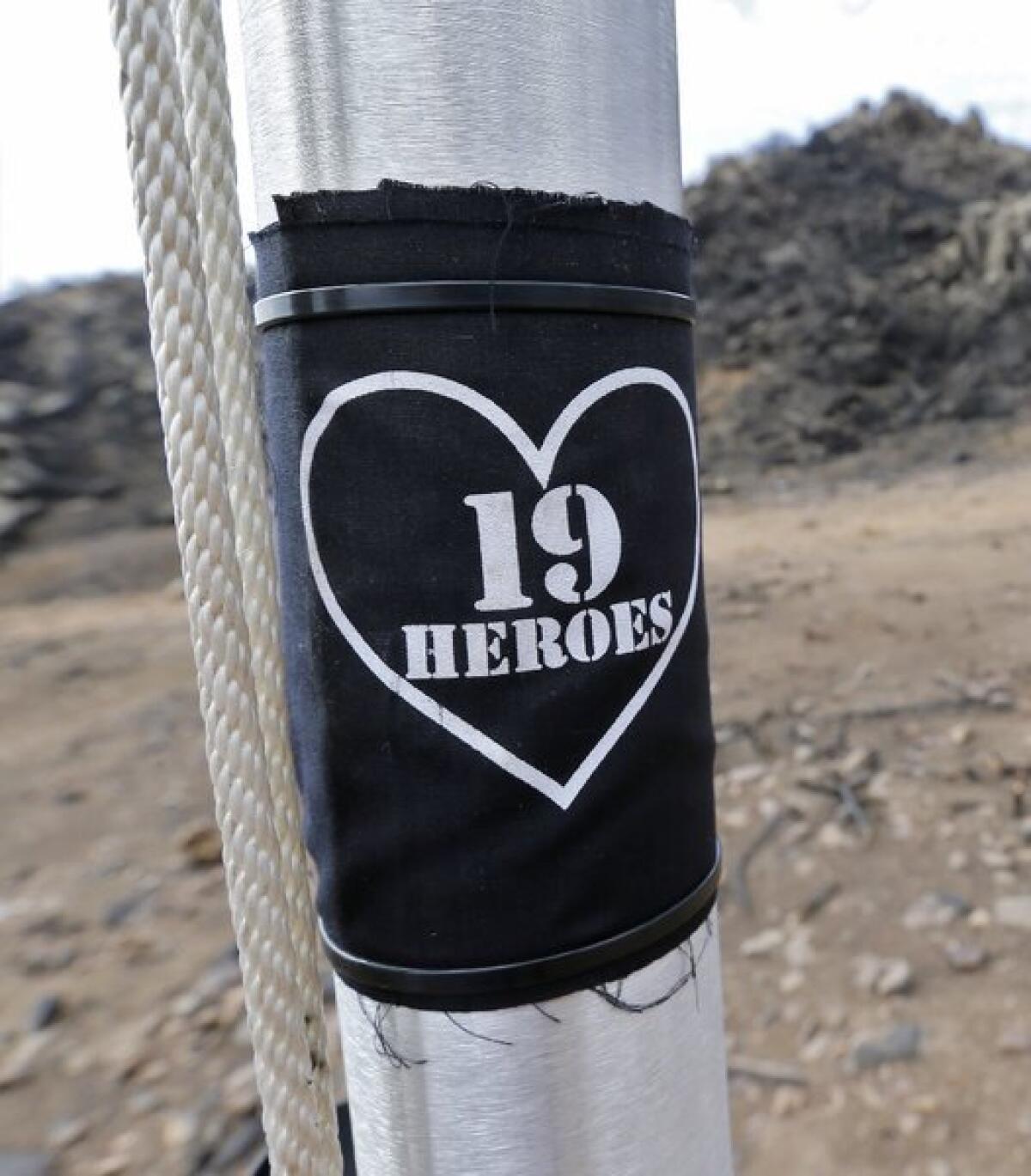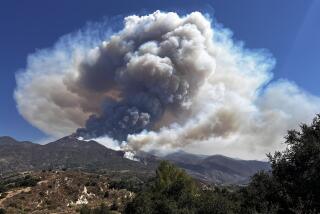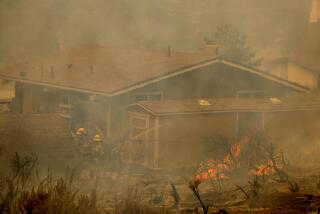What really caused the deaths of 19 firefighters in Yarnell?

An extensive and intriguing story in a Phoenix newspaper suggests that there might be more to the deaths of 19 elite firefighters this summer than just a freak storm that whipped the fire near Yarnell, Ariz., around them, cutting off their escape.
The article in the alt weekly Phoenix New Times reports that the request to deploy the Granite Mountain Hotshots was denied the first several times around, and raises questions about whether the reason might have been that the team already had reached the maximum number of consecutive firefighting days combating other blazes. Only after the state directly contacted the team’s director were they dispatched to the fire where they would meet their deaths.
According to the New Times, the team did not meet all of the minimum standards for hotshot groups, which are specially trained to fight wildfires on the ground, including such heavy work as clearing land by hand. And it produces documents that suggest that a reason for these shortcomings was the unwillingness by the city of Prescott to fund the team properly. The Granite Mountain team was the only hotshot group in the nation — there are 108 others — to be municipally based rather than attached to a federal land management agency, the paper reported.
In addition, it reported, the state of Arizona neglected to even tackle the fire the night it started, waiting until the next day, quite possibly because of budget cuts.
Fortunately, the investigation isn’t left up to Prescott or the state, both of which would have an interest in playing down such factors if they were true. Fire experts from outside the state are involved in the probe.
There have been angry outcries against anyone who even suggests the possibility of human error in the Yarnell fire. Some of the hotshot team’s supporters have said that even if there were shortcomings on the part of the team, they should be kept confidential, imparted only to other firefighters to prevent further harm. That’s ridiculous. Such findings wouldn’t detract from the bravery these men showed in their chosen careers or the grueling work they undertook on the part of the public. They don’t have to be enshrined as perfect human beings to be admired.
The public, which also mourns them and has an interest in preventing future tragedies, has a right to know what happened.
ALSO:
Is marijuana legalization inevitable?
Five reasons to stay away from Texas right now
More to Read
A cure for the common opinion
Get thought-provoking perspectives with our weekly newsletter.
You may occasionally receive promotional content from the Los Angeles Times.











